Chinese tourists return to Thailand on 'zero-fare tours', and locals aren't happy
With China resuming outbound travel, Chinese tourists are on the move again. And with the wave of people, comes the resurgence of "zero-fare" tour groups - particularly in Thailand - that promise low-budget options. However, tourists are only brought to specific spots to spend money, which eventually goes back to Chinese operators without benefiting the local economy.
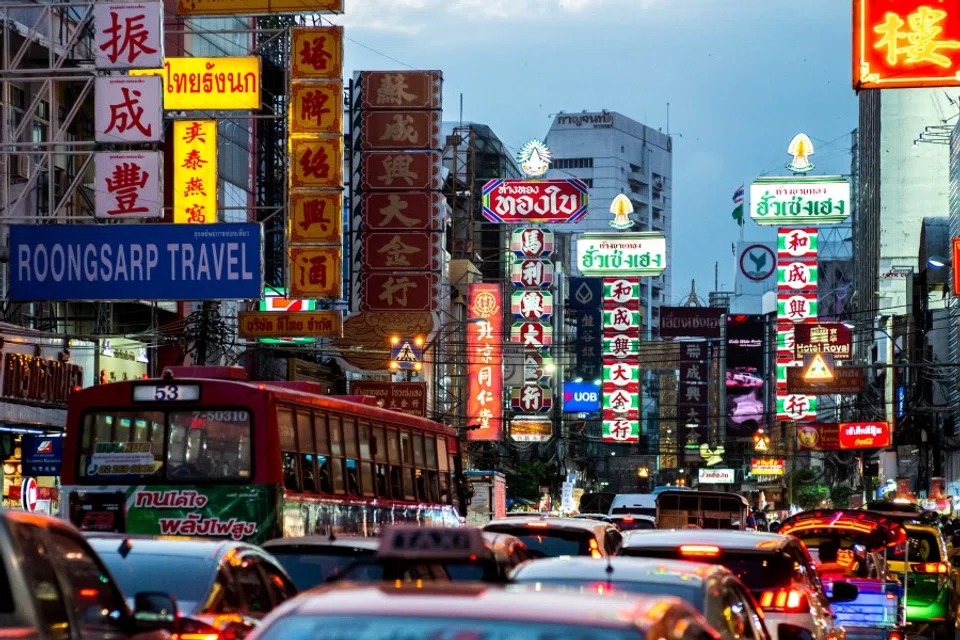
Flights from Guangzhou to Bangkok around mid-July cost at least 1,000 RMB (US$140), but some travel agencies are offering six-day, five-night packages for only 999 RMB, inclusive of airfare, five-star accommodation, meals and guided transfers.
These low-priced travel packages may seem like a loss-making business, but they can be found on various Chinese travel websites and many travel agencies are desperately promoting them.
'Zero-fare' tours
These so-called "zero-fare" (零团费) tour groups are attracting tourists with their extremely low prices. And in return, tourists would be brought to designated shopping spots as part of their itinerary, so that travel agencies could recover costs from sale commissions.
Take for example the enticing six-day, five-night trip to Bangkok and Pattaya at 999 RMB. The travel agency informed me that the itinerary includes three designated shopping stops, where the guide would usually take tourists to buy latex bedding products, silk or medicine.
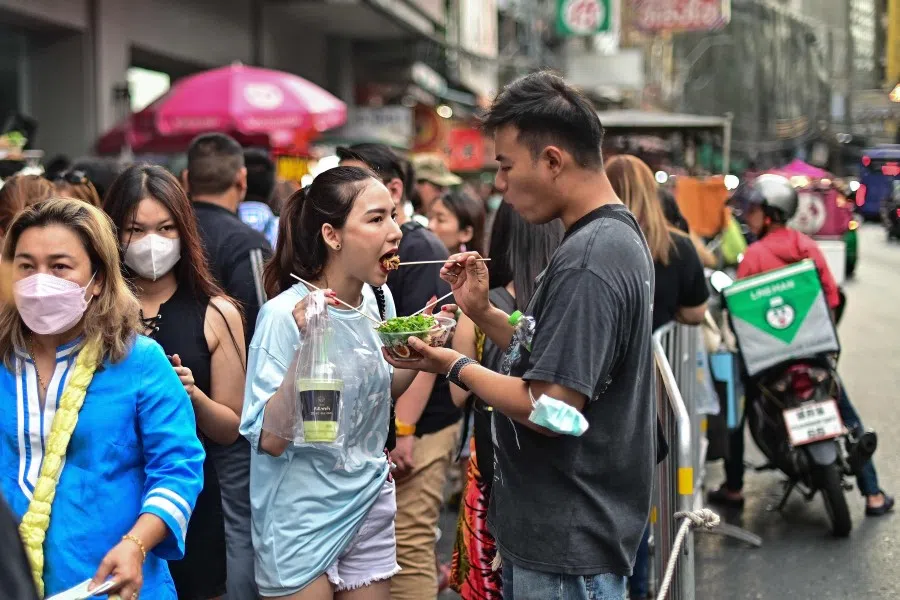
Despite the shopping stops, zero-fare travel is still attractive due to the low cost. A typical tour to Thailand "with no shopping" generally costs around 2,500 to 3,000 RMB inclusive of airfare, or 4,000 RMB during the peak summer vacation period, excluding visa fees and tips. In comparison, the "shopping tours" cost just half that price or even less.
The number of Chinese tourists would determine the pace of Thailand's tourism recovery and even the speed at which the Thai economy emerges from the shadows of the pandemic.
Importance of Chinese tourists
According to data from multiple Chinese travel websites, Thailand remains one of the most popular tourist destinations among Chinese tourists. Over 1 million Chinese tourists have entered Thailand this year, and the strong demand provides a huge market for zero-fare travel.
The Thai government expects to welcome 5 million Chinese tourists this year, generating approximately 446 billion baht (US$12.78 billion) in tourism revenue. Depending on the number of flights during the peak tourist season, the number of Chinese tourists entering Thailand could reach as high as 7 million.
The tourism industry has always been a crucial pillar of the Thai economy, and Chinese tourists are among the main sources of tourism in Thailand. The number of Chinese tourists would determine the pace of Thailand's tourism recovery and even the speed at which the Thai economy emerges from the shadows of the pandemic.
Forced transactions
However, while low-cost tours bring Chinese tourists to Thailand, they also have a negative impact on the Thai tourism industry. When Chinese zero-fare tourism to Thailand was prevalent around seven to eight years ago, there were several negative incidents, including tour guides forcing tourists to make purchases, insulting, threatening and even physically assaulting them or leaving them behind if they resisted or spent less money.
Twenty-four-year-old teacher Fu Wenqian shared with Zaobao her terrible experience with a low-cost tour to Inner Mongolia. The Guangdong native said, "You have to spend money wherever you go because nothing is included in the tour fee."
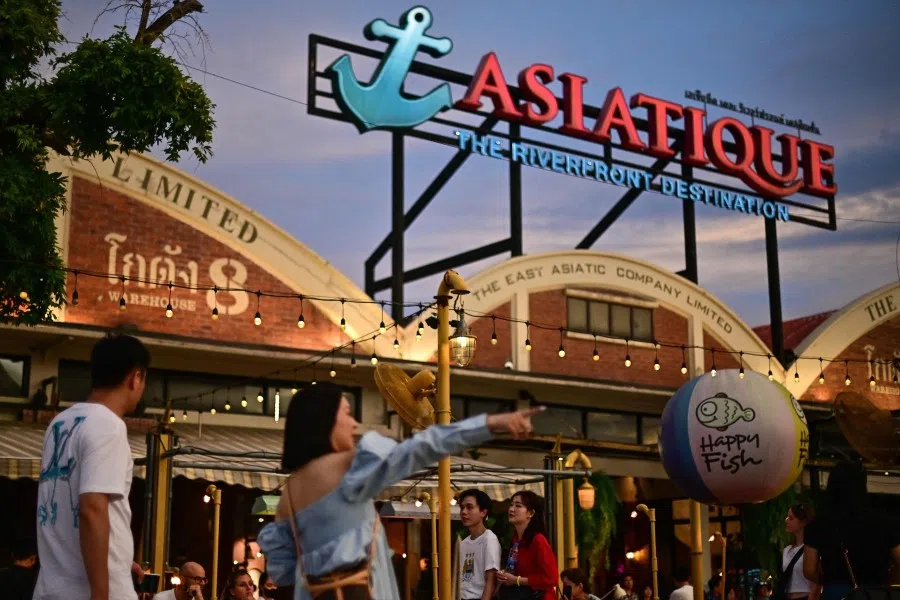
She recalled, "When we arrived at the grassland, the guides told us that we had to pay for an off-road vehicle to go further, or we would have to wait around for others till nightfall. It was a forced transaction, and I eventually spent 1,000 to 2,000 RM. The overall travel experience was very poor and I felt cheated."
Fu plans to travel to Thailand in July on an independent tour and is firm against joining a low-cost tour. She said, "After my experience in Inner Mongolia, I will never consider joining a low-cost tour again, even less so to Thailand... Because when you don't understand the language and are unfamiliar with the place, you are at the mercy of the guide's arrangements."
Closed-loop Chinese industry chain
Thai media have recently focused on zero-fare tourism from China, criticising these tour groups for forcing tourists to spend more money on poor-quality products and services, which damages the reputation of the Thai tourism industry.
Sisdivachr Cheewarattanaporn, president of the Association of Thai Travel Agents, feels that zero-fare tour groups are more damaging than tours organised by illegal travel agencies, as they have a greater long-term impact on the reputation of Thailand's tourism industry.
It is also known that some zero-fare tour agencies illegally hire Chinese tour guides to save costs, taking away job opportunities from the local Thai tour guides.
...only a small portion of the tourism revenue will find its way into the pockets of Thai operators while most if not all of it will flow overseas.
Low-cost tour operators often establish closed-loop industry chains, where tourists are only taken to specific hotels, restaurants and shops within this network, which is not conducive to the overall development of the tourism industry. According to media reports, most of these "insider" locations are operated by Chinese businesses.
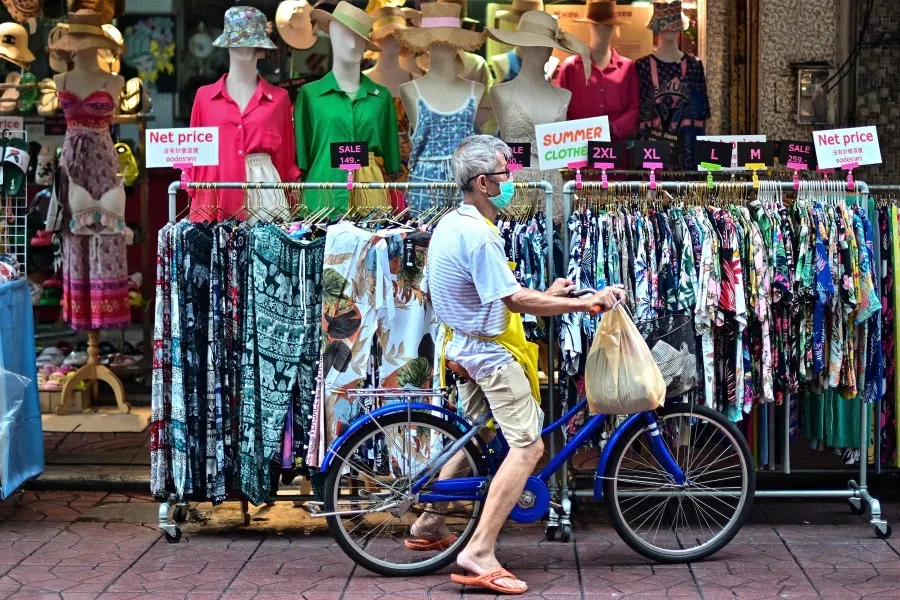
The Bangkok Post recently quoted Yuthasak Supasorn, governor of the Tourism Authority of Thailand (TAT), as saying that the closed-loop tourism industry chain has only re-emerged recently after the pandemic. However, with such operations becoming a trend, only a small portion of the tourism revenue will find its way into the pockets of Thai operators while most if not all of it will flow overseas.
Yuthasak believes that it is necessary to regulate zero-fare tour groups but acknowledges that it is difficult for authorities to investigate or crack down on these travel agencies if they are registered and operate legally.
Thai-China actions to combat zero-fare tours
The resurgence of zero-fare tour groups has caught the attention of the Thai government. Thai tourism authorities plan to take comprehensive measures to combat zero-fare tour groups and are preparing to sign a cooperative agreement with the Chinese government to address this long-standing issue.
In 2016, the Thai government introduced measures to crack down on zero-fare tour groups, including implementing a minimum fee of at least 1,000 baht (US$29) per person per day, and capping the cost of optional individual activities at 3,000 baht to prevent excessive charges. The Thai authorities said that these measures led to an increase of about 10 billion baht in tax revenue in 2017 compared with 2016.
...it is not only Chinese tourists but also travellers from Eastern Europe and South America who participate in zero-fare tour groups and use illegal tour guides and services from nominee companies.
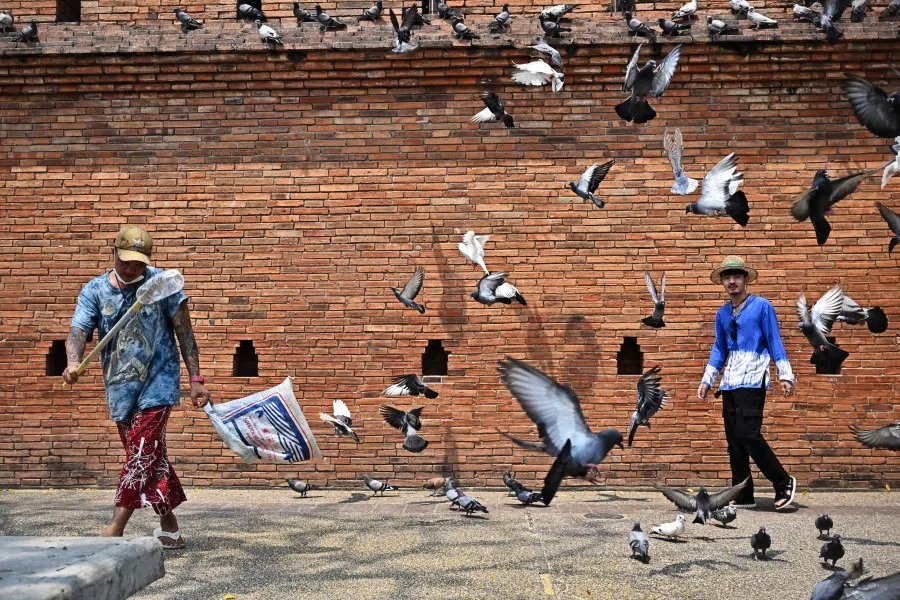
In April this year, the TAT revealed that it has shared with the Thai Ministry of Foreign Affairs and the Chinese government a list of 189 legitimate travel agencies that work with Chinese companies. Travel agencies excluded from the list will undergo a comprehensive review and must provide documentation of their business operations in order to continue offering tourism services.
The Thai authorities also warned that any Chinese tourism operators conducting business in Thailand as nominee companies or zero-fare operations, or using foreign tour guides, will face legal ramifications.
Apichart Suriboonya, deputy commissioner of the Tourist Police Bureau, said that complaints about illegal tourism activities mainly occur in major tourist cities such as Bangkok, Pattaya, Chiang Mai and Phuket. He said that it is not only Chinese tourists but also travellers from Eastern Europe and South America who participate in zero-fare tour groups and use illegal tour guides and services from nominee companies.
Thailand and China have established an extradition treaty and engage in regular communication and coordination with Chinese law enforcement agencies to monitor and regulate the illegal businesses operated by Chinese agents.
New sources of customers
The encroachment of zero-fare tour groups, coupled with the fact that Chinese tourists have not fully returned, has forced Thai tourism operators to explore new sources of customers, including the European market.
An operator of a small travel agency in Chiang Mai who has been in business for over ten years said that her agency usually arranges activities such as elephant rides, boat trips and watching Muay Thai matches. The agency mainly catered to Chinese tourists prior to the pandemic, but their numbers sharply declined and have been unstable after the pandemic, so the agency now primarily serves European tourists.
...most Chinese tourists already signed up for tour groups with agencies in China, or have their own travel plans. Chinese tourists are also now more mindful of cost and prefer to spend less on travel packages compared with before the pandemic. - Thai travel agency operator
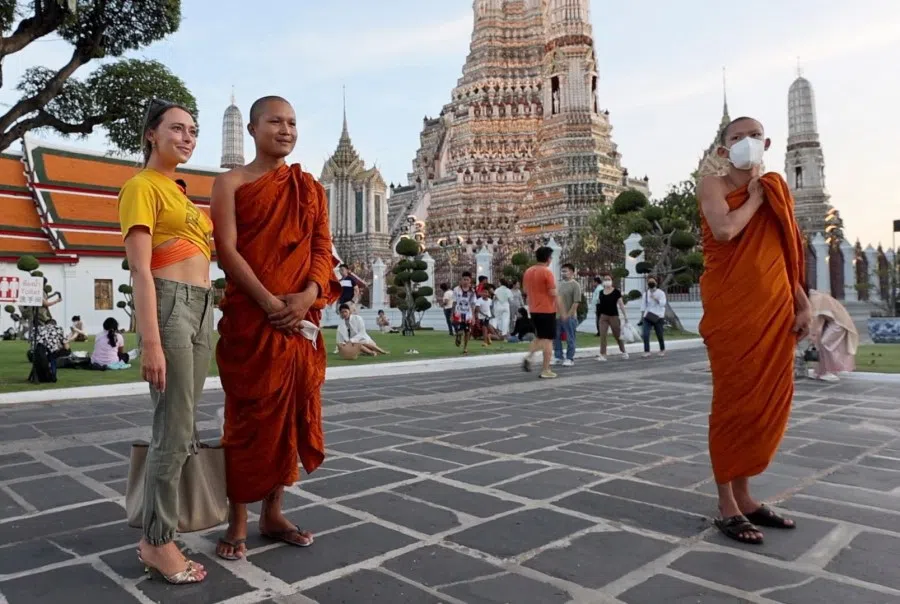
The operator, who declined to be named, said, "Since China resumed outbound tourism, the demand from Chinese tourists has slightly increased but is still much lower compared with pre-pandemic levels, at only about half or one-third of the previous numbers."
She said that most Chinese tourists already signed up for tour groups with agencies in China, or have their own travel plans. Chinese tourists are also now more mindful of cost and prefer to spend less on travel packages compared with before the pandemic.
The reappearance of zero-fare tour groups has raised considerable concerns for her because this closed-loop operation only takes tourists to shops owned by Chinese businesses. If zero-fare tourism takes root, small Thai tourism operators may lose business opportunities. To survive, she is now working harder to attract tourists from Europe, Hong Kong and Taiwan, and is also developing more small-scale travel packages to meet tourist demands.
Renjit, a barista working at a cafe in Chiang Mai, also expressed frustrations about zero-fare tour groups. He told US media, "The emergence of zero-fare tours has been eating away at our resources, while the local economy has not seen corresponding growth."
Chan, who has been operating a travel agency in Bangkok for 15 years, told Zaobao that most of the consumption revenue generated by zero-fare tourism goes back to Chinese operators, making it difficult for Thai tourism operators to earn money.
Therefore, despite the increasing number of Chinese tourists, Chan currently has no plans to shift focus to them and will continue to concentrate on serving customers from Europe, the US and Australia.
Bumpy road to recovery
The road to recovery for Thailand's tourism industry is fraught with challenges, and the resurgence of zero-fare tour groups is likely to further hinder the pace of recovery.
Pagon Gatchalee, lecturer at the Department of Marketing at Chiang Mai University Business School, told Zaobao that the Thai government predicts an arrival of 28 million international tourists this year. However, several risk factors may impact this target.
...zero-fare tour groups not only comprise low-cost tours but also fake "premium tour groups" that charge exorbitant fees.
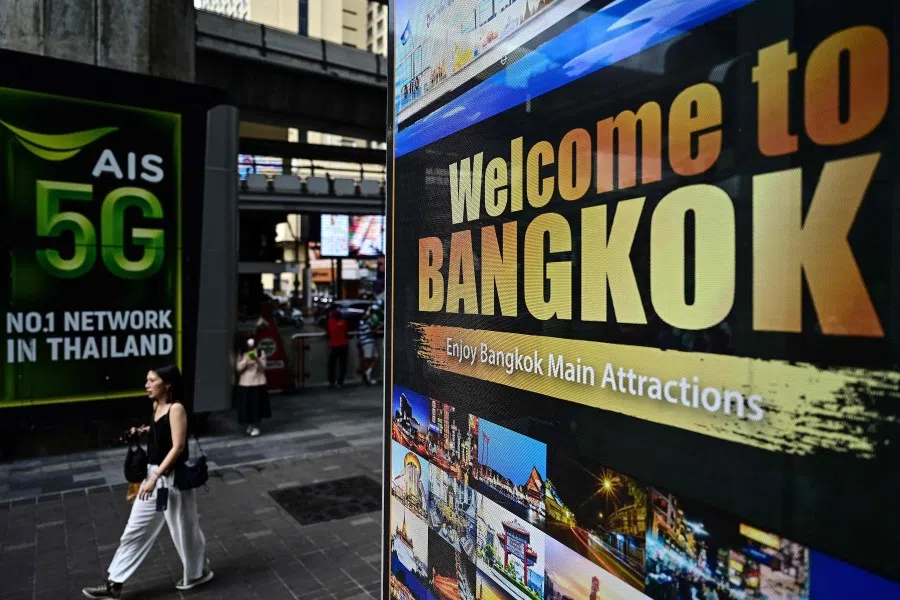
He said, "This includes post-election turmoil, false information and rumours about the dangers of travelling to Thailand, as well as tourists feeling the rise in travel expenses... The resurgence of zero-fare tours is also one of the main factors."
Pagon noted that the number of flights between China and Thailand has not yet fully recovered to pre-pandemic levels, while the high-cost structure of the tourism industry and the collapse of many closed-loop businesses during the pandemic have slowed the resurgence of zero-fare tour groups. Hence, he remarked that it is now "a good time for the government to take action to control zero-fare tourism" and prevent its return.
He added, "The government should intensify efforts to crack down on illegal Chinese investments and business operators in Thailand. This is not just about zero-fare tour groups but will also have an impact on the image and safety of Thailand's tourism industry."
However, zero-fare tour groups not only comprise low-cost tours but also fake "premium tour groups" that charge exorbitant fees. These are also part of the closed-loop industry controlled by Chinese operators. Pagon hopes the government will pay more attention to this phenomenon "because this has a heavy impact on Thailand's tourism industry, particularly the small travel agencies".
"The younger generation is more willing to pay more for what they consider is worthwhile, and zero-fare tours do not fit this inclination." - Pagon Gatchalee, lecturer, Department of Marketing, Chiang Mai University Business School
Chinese young travellers' changing taste
Looking ahead, Pagon also believes that zero-fare tourism will have difficulty sustaining its appeal to young travellers visiting Thailand, as the spending habits of Chinese tourists are slowly changing.
Pagon said that there has been a growing number of Chinese independent travellers visiting Thailand since 2017. This is mainly due to the negative impact of zero-fare tour groups, particularly concerns about safety, and the younger generation's preference for gathering information and customising their own itineraries. He said, "The younger generation is more willing to pay more for what they consider is worthwhile, and zero-fare tours do not fit this inclination."
Planning for her upcoming independent Thailand trip, Fu is now checking out travel guides from various social media platforms to plan her itinerary. However, if given a choice, she said she would still prefer joining a "100% sightseeing" tour group to cut down on tour preparation time and solve the language barrier issue.
She said, "When choosing a tour group, my top consideration is whether it is a 100% sightseeing tour that guarantees no forced spending. Secondly, I will check out the itinerary and the reviews of the tour. It's ok to spend more for a premium tour, for example, something that's 1,000 RMB more expensive than a regular tour. I can accept it."
This article was first published in Lianhe Zaobao as "中国恢复出境旅游团 泰国严防零团费卷土重来".



![[Video] George Yeo: America’s deep pain — and why China won’t colonise](https://cassette.sphdigital.com.sg/image/thinkchina/15083e45d96c12390bdea6af2daf19fd9fcd875aa44a0f92796f34e3dad561cc)
![[Big read] When the Arctic opens, what happens to Singapore?](https://cassette.sphdigital.com.sg/image/thinkchina/da65edebca34645c711c55e83e9877109b3c53847ebb1305573974651df1d13a)
